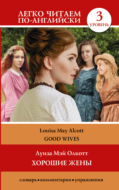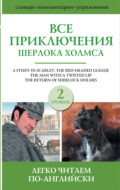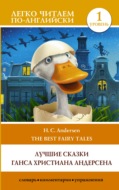Loe raamatut: «Таинственный сад / The secret garden»
© Матвеев С. А.
© ООО «Издательство АСТ», 2021
Frances Hodgson Burnett
The Secret Garden
Chapter I
There is no one left
When Mary Lennox was sent to Misselthwaite Manor to live with her uncle everybody said she was a very disagreeable-looking child. It was true. She had a little thin face and a little thin body, thin light hair and a sour expression. Her hair was yellow, and her face was yellow because she was born in India and was always ill.
Her father held a position under the English Government and was always busy and ill himself. Her mother was a great beauty who cared only to go to parties and amuse herself. She did not want a little girlat all1. When Mary was born she handed her over to the care of an Indian nurse. So when she was a sickly, fretful, ugly little baby she was kept out of the way2. And when she became a sickly, fretful, toddling girl she was kept out of the way also. She saw the dark faces of her nurse and the other native servants. They always obeyed her. So by the time the girl was six years old she was very tyrannical and selfish.
The young English governess who came to teach her to read and write disliked her so much that she left in three months. When other governesses came they always went away even sooner. So Mary learned letters herself.
One frightfully hot morning, when she was about nine years old, she awakenedfeeling very cross3. She became crosser when she saw that the servant who stood by her bedside was not her Ayah.
“Why did you come?” she said to the strange woman. “I will not let you stay. Send my Ayah to me.”
The woman looked frightened. She only stammered that the Ayah could not come. Mary kicked her. The servant looked only more frightened and repeated that it was not possible for the Ayah to come.
There was something mysterious in the air that morning. The servants hurried about with ashy and scared faces. But no one told the girl anything and her Ayah did not come. She was actually left alone. At last she wandered out into the garden and began to play by herself under a tree near the veranda. She was growing more and more angry. She was muttering to herself,
“Pig! Pig! Daughter of Pigs!” she said, because to call a native a pig is the worst insult of all.
She was grinding her teeth and saying this over and over again when she saw her mother. Her mother came out on the veranda with someone. She was with a fair young man and they stood talking together in low strange voices. Mary knew the fair young man who looked like a boy. He was a very young officer from England. The child stared at him, but she stared most at her mother. She always did this when she had a chance to see her. Her mother was a tall, slim, pretty person and wore lovely clothes. Her hair was like curly silk and she had a delicate little nose and large laughing eyes. All her clothes were thin and floating.
But this morning, her eyes were not laughing at all. They were large and scared and lifted imploringly to the fair boy officer’s face.
“Is it so very bad? Oh, is it?” she said.
“Awfully,” the young man answered in a trembling voice. “Awfully, Mrs. Lennox. Why didn’t you go to the hills?”
Mother wrung her hands.
“Oh, I know!” she cried. “I only stayed to go to that silly dinner party. What a fool I was!”
At that very moment a loud sound of wailing broke out from the servants’ quarters. The woman clutched the young man’s arm. The wailing grew wilder and wilder.
“What is it? What is it?” Mrs. Lennox gasped.
“Someone died,” answered the officer. “The epidemicbroke out among your servants4.”
“I did not know!” Mother cried. “Come with me! Come with me!” and she turned and ran into the house.
Soon Mary learned everything. The cholera has broken out and people were dying like flies. Her Ayah was ill, and then she died. That is why the servants were wailing. Before the next day three other servants were dead and others ran away in terror. There was panic on every side, and dying people in all the bungalows.
During the confusion and bewilderment of the second day Mary hid herself in the nursery. Everyone forgot her. Nobody thought of her, nobody came to her, and strange things happened of which she knew nothing. Mary cried and slept. She only knew that people were ill and that she heard mysterious and frightening sounds. Once she crept into the dining-room and found it empty. A partly finished meal was on the table. The child ate some fruit and biscuits. She was thirsty, so she drank a glass of wine. It was sweet, and she did not know how strong it was. Very soon it made her intensely drowsy. She went back to her nursery and shut herself in again. The wine made her sleepy. She lay down on her bed and knew nothing more for a long time.
Tasuta katkend on lõppenud.








